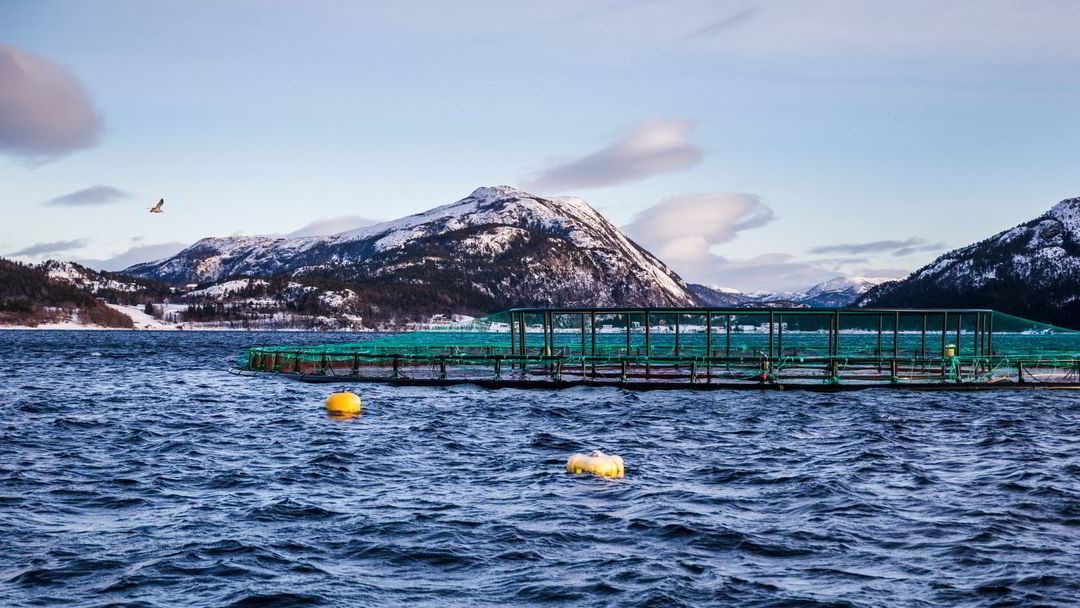KrF, Høyre and Venstre have broken off the negotiations with the government parties on the ground rent tax on the farming industry, popularly called the salmon tax.
On Oslo Børs, there have been clear movements in the Norwegian salmon shares following the news of a breakdown in negotiations. Initially, the stock exchange’s seafood index rose a couple of percent on the news, but then everything turned around. In just over an hour, the index fell again by three percent. On the day as a whole, it is now down almost five percent.
This is how it looks for the big salmon companies:
- Mowi falls four percent.
- Salmar falls just over four percent.
- Grieg Seafood falls by more than eight percent.
- Lerøy Seafood falls by almost eight per cent. Here it is important to point out that Lerøy presented results for the first quarter on Tuesday morning. The boss himself was not satisfied with the profitability of the farming segment.
- The fishing company Austevoll falls by around six percent. Austevoll deals in both fishing, fishmeal and oil, and farming. Almost all of the salmon exposure comes from the group’s roughly 50 per cent ownership stake in Lerøy.
Altogether, almost ten billion kroner has been shaved off the top four companies’ stock market values as a result of the price falls.
“Reasonable reaction”
– I think some investors thought there would be a settlement at a lower rate than 35 per cent. Then there will be a breakdown in the negotiations and therefore the probability is even lower that you will get a rate that is lower than 35 per cent, says seafood analyst Herman Aleksander Dahl at Nordea Markets.
He thinks the market reactions seem reasonable compared to what the market had expected.
– Most people would have thought it would be 35 per cent, but there are probably a few who had hoped it would be better, he says.
According to the Center Party’s fiscal policy spokesperson, Geir Pollestad, the Labor Party and the Labor Party were willing to make significant concessions in order to obtain a broad settlement. The governing parties proposed, among other things, a tax rate of 30 percent. The Conservative Party, Liberal Party and KrF declined to do so. The government’s original proposal was 40 per cent, but was reduced to 35 before Easter.
A cut from 35 to 30 per cent could probably save the industry over NOK one billion in tax in 2023, given that the state’s income from the tax is expected to be over NOK seven billion.
The bourgeois parties have also refused a deduction that will have a value of NOK 2.2 billion in 2023, according to Pollestad.
– Now will vote for what is our proposal, and go to the Storting with it. Our door is still open if the Liberals, KrF and the Conservative Party want to reduce the rate, he says.
In a joint press release, Høyre, Venstre and KrF write that the left side in the negotiations was determined to have as high a tax for the aquaculture industry as possible.
– We register that the parties that argue for reducing the tax burden reject a solution that would contribute to just that, both through a reduced tax rate, deductions for part of the costs the breeders have had before 2023 and reduced wealth tax, says Eigil Knutsen, fiscal policy spokesperson in The Labor Party.
I think some will look abroad
This week and last week, the big salmon companies have presented results. They have profited well from soaring salmon prices, but the salmon tax has been a recurring theme with many of the companies. Several people are talking about a brake on investment.
Dahl in Nordea Markets believes that the salmon companies will be able to pay the tax bill, but that this will probably lead to less investment in the Norwegian farming industry going forward. He believes that companies that have the opportunity will turn their investments abroad.
– All the Norwegian players have put their investment programs on hold. It may be that something will come back when you know what the tax will be, but there will probably be less investment in the industry going forward, says the analyst.
– From the investor side, you will probably also get foreign investors who do not want to be exposed to Norwegian farming for a long time to come because they feel political risk and uncertainty, says Dahl.(Terms)Copyright Dagens Næringsliv AS and/or our suppliers. We would like you to share our cases using links, which lead directly to our pages. Copying or other forms of use of all or part of the content may only take place with written permission or as permitted by law. For further terms see here.
2023-05-16 12:36:53
#Norwegian #salmon #shares #fall #negotiations #break
